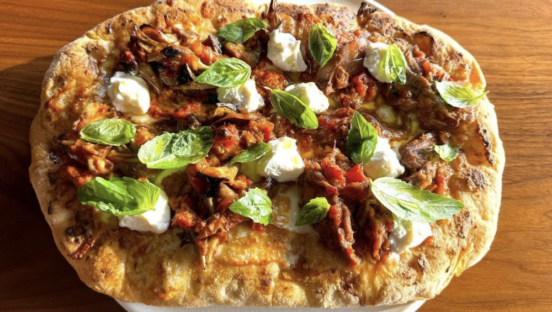 College interns! Who would have thought that your marketing dollars could be stretched with a huge return on investment year after year? For the past five years, our accounting practice has employed full-time professionals and part-time college students to serve our restaurant owners all year long. We are now moving into the marketing departments of the local university, where I am a part-time professor for advanced tax classes in the Masters of Accountancy program.
College interns! Who would have thought that your marketing dollars could be stretched with a huge return on investment year after year? For the past five years, our accounting practice has employed full-time professionals and part-time college students to serve our restaurant owners all year long. We are now moving into the marketing departments of the local university, where I am a part-time professor for advanced tax classes in the Masters of Accountancy program.
For the past 20 years, I have been involved with recruiting at the college level, primarily for accounting students. As a recruiter, I look for three basic factors in a potential college student: grades that are at least a 3.0, a personality to keep our current customers and, finally, work experience in our trade. Yes, most employers who recruit on campuses require work experience, which accelerates the possibility of the student hitting the ground running in his first year of employment.
College internships are vital now for graduating students to have on their rèsumès, so most colleges are actively searching in the community for internships for their students. Career centers are a great place to start to fi nd out how to set up your restaurant as a potential employer, both part-time and for college internship credit. Each college’s criteria are different as far as payment to the students, student applications, and reporting back to the college on the progress of the student in an internship program. Use the following three easy steps to get started in your community:
Locate
First, locate your local junior college or university within, say, a five-mile radius of your restaurant. The institution needs to be close enough for the student to ride a bike or travel a short distance to your restaurant to save time and money. Students live on a budget, so make part of their pay some free food at your restaurant when they come to work; this expenditure for the restaurateur equals only the food cost. Most institutions will require a minimum-wage pay to the students. We have a yearly scholarship program for our marketing project to create our database of restaurants we market to in Arkansas. You can focus on a five-mile radius of your restaurant to identify your customer base and document all potential customers and their buying habits.
Track
Second, decide how you will track the database of information captured by your intern. For example, most POS systems are capable of tracking email, names and addresses of customers, so this will be your entry point of information. All work performed by an intern must be monitored weekly to make sure he stays on track of your intended assignment, which should be identifying customers and marketing to repeat customers. Tracking ZIP codes, online outreach, direct mail and guerilla marketing ideas are all fair game to spark the students’ creativity. Turn them loose! Let their classmates and professors frequent your restaurant, and provide discounts for their immediate friends and family. Spreading the word through discounts for their spheres of influence creates lasting customers, especially when the intern has an incentive to promote your restaurant while getting paid.
Brand
Finally, brand your intern with your restaurant’s theme. For instance, you can provide the intern with T-shirts, hats and coupons to pass out at the university; sponsor on-campus events; and have a working relationship with the college’s dean of the marketing department (these are all relatively inexpensive marketing activities). Your interns can be walking billboards while on campus. Invite the dean to your restaurant to strategize about the best way to utilize interns and to make sure you accommodate the teachings and technology of the institution, thereby creating a highly sought-after internship year after year that the dean will promote to his classes. Remember that the intern is highly motivated to utilize you as a reference when he eventually moves into the marketplace with a marketing degree and should understand the value of the internship program you’re offering. Make this clear when designing your internship program. Not only will you be providing real-world work experience and moderate pay, but an invaluable referral reference if the intern performs in an outstanding professional manner. Basically, you can write your referral recommendation in a letter, showing the intern that upon completion of your program you will be signing it for him to use on his rèsumè. The impact you can have on a college student’s life and your restaurant is a win-win.
Don’t get me wrong; hiring a college intern is not always easy. You have to be present on campus and make it known that you have an invaluably designed program so that interns line up to apply. Be diligent about getting the dean on your side and explaining how your internship program not only provides real-world work experience but adds to their applications of teachings inside the institution. Your program will take some work to design and require constant monitoring, but the return on investment is exponential. You gain customer databases, new marketing ideas and technology, and marketing channels you may not normally be able to afford. Ultimately, your program can be a success as long as you approach the local institution with the attitude of “How can I serve a college student with real-world work experience?”














